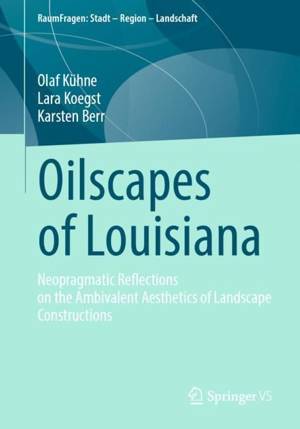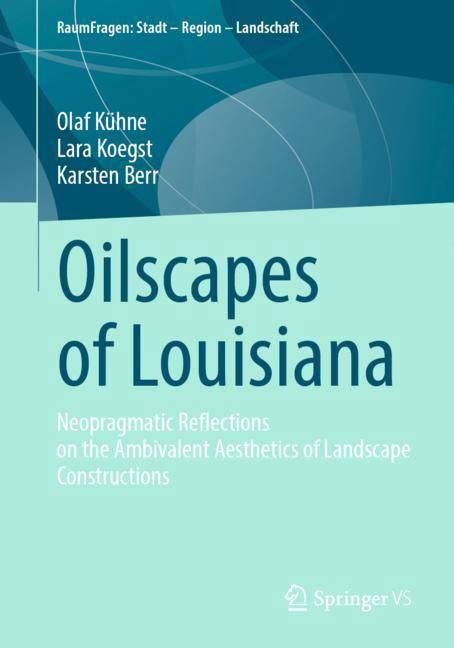
- Afhalen na 1 uur in een winkel met voorraad
- Gratis thuislevering in België vanaf € 30
- Ruim aanbod met 7 miljoen producten
- Afhalen na 1 uur in een winkel met voorraad
- Gratis thuislevering in België vanaf € 30
- Ruim aanbod met 7 miljoen producten
Zoeken
Oilscapes of Louisiana
Neopragmatic Reflections on the Ambivalent Aesthetics of Landscape Constructions
Olaf Kühne, Lara Koegst, Karsten Berr
€ 89,95
+ 179 punten
Omschrijving
Oilscapes are to be understood as an aestheticized synthesis of objects of extraction, distribution, processing, and consumption of petroleum and petroleum-derived products. Based on the concept of neopragmatic landscape research, this book addresses questions of the social construction of the relationship between the petrochemical industry and the landscape, as well as individual interpretations and evaluations in this regard. The particular focus is on exploring the possibilities and limits of aesthetic experience of oilscapes as well as the categorizations, interpretations, and evaluations of these aesthetic outcomes. In recourse to the neopragmatic tradition, to the thinking of Richard Rorty, the engagement with 'sensory induced cognition' is carried out from the stance of irony, directed in particular at the discourse community possessing 'expert special knowledge', with a special focus on methods of representation that are innovative in the context of spatial science. The study area for assessing this approach is Louisiana (United States), which - being spatially quite diverse - has been intensively shaped for more than a century by the activities of the petrochemical industry, as well as its unintended health and ecological side effects.
Specificaties
Betrokkenen
- Auteur(s):
- Uitgeverij:
Inhoud
- Aantal bladzijden:
- 255
- Taal:
- Engels
- Reeks:
Eigenschappen
- Productcode (EAN):
- 9783658433956
- Verschijningsdatum:
- 5/02/2024
- Uitvoering:
- Paperback
- Formaat:
- Trade paperback (VS)
- Afmetingen:
- 170 mm x 244 mm
- Gewicht:
- 449 g

Alleen bij Standaard Boekhandel
+ 179 punten op je klantenkaart van Standaard Boekhandel
Beoordelingen
We publiceren alleen reviews die voldoen aan de voorwaarden voor reviews. Bekijk onze voorwaarden voor reviews.











